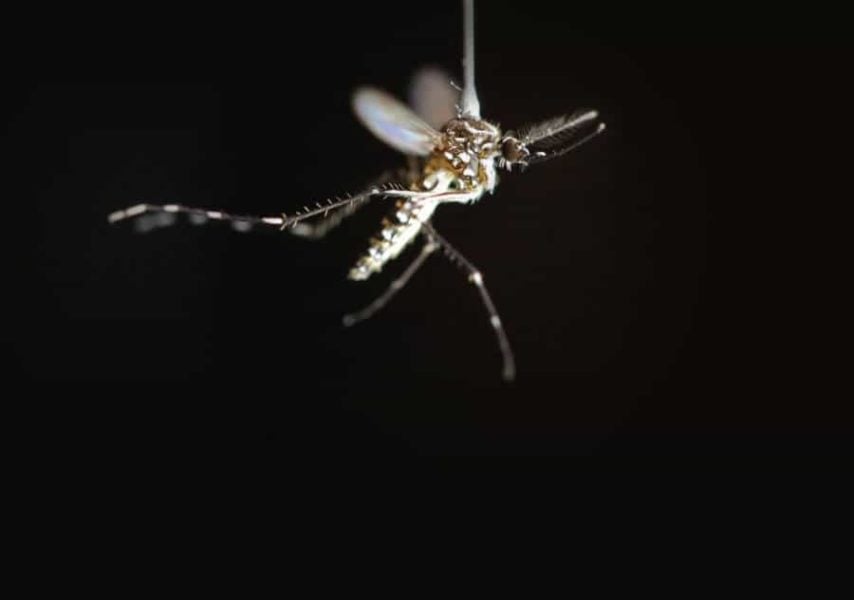Most of us surely don’t think of mosquitoes as being especially adept at learning. But that may not be the case.
In a paper published Jan. 25 in Current Biology, University of Washington researchers report that mosquitoes can in fact learn to associate a particular odor with an unpleasant mechanical shock akin to being swatted. As a result, they’ll avoid that scent the next time.
“Once mosquitoes learned odors in an aversive manner, those odors caused aversive responses on the same order as responses to DEET, which is one of the most effective mosquito repellents,” said senior author Jeff Riffell, a UW professor of biology. “Moreover, mosquitoes remember the trained odors for days.”
Researchers already knew that mosquitoes don’t decide whom to bite at random. They show obvious preferences for some people over others. They are also known to alternate hosts seasonally, feeding on birds in the summer and mammals and birds during other parts of the year, for instance. Riffell and his colleagues wanted to find out more about how learning might influence mosquitoes’ biting preferences.
As a first step, they trained mosquitoes by pairing the odor of a particular person or animal species — a rat versus a chicken, for example — with a mechanical shock. For the mechanical shock, they used a vortex mixer to simulate the vibrations and accelerations a mosquito might experience when a person tried to swat them. The insects quickly learned the association between the host odor and the mechanical shock and used that information in deciding which direction to fly — though interestingly, the mosquitoes could never learn to avoid the smell of a chicken.
Learning in many animals, from honeybees to humans, depends on dopamine in the brain. Additional experiments by Riffell and his team showed that dopamine also is essential in mosquito learning. Genetically modified mosquitoes lacking dopamine receptors lost the ability to learn.
The researchers also glued mosquitoes to a custom, 3-D-printed miniature “arena” in which the insects could fly in place, while researchers recorded the activity of neurons in the olfactory center of their brains. Those experiments showed that without dopamine, those neurons were less likely to fire. As a result, mosquitoes became less able to process and learn from odor information.
These findings may have important implications for mosquito control and the transmission of mosquito-borne diseases, according to the researchers.
“By understanding how mosquitoes are making decisions on whom to bite, and how learning influences those behaviors, we can better understand the genes and neuronal bases of the behaviors,” said Riffell. “This could lead to more effective tools for mosquito control.”
With this new understanding of how mosquitoes learn to avoid certain hosts, the researchers say they are now exploring mosquitoes’ ability to learn and remember favored hosts.
“In both cases, we think dopamine is a critical component,” said Riffell.
Co-lead authors on the paper are former UW postdoctoral researchers Clément Vinauger and Chloé Lahondère. Vinauger is now an assistant professor of biochemistry at Virginia Tech, and Lahondère is a research assistant professor of biochemistry at Virginia Tech. UW co-authors are postdoctoral researcher Gabriella Wolff, undergraduate alumna Lauren Locke, undergraduate Jessica Liaw and associate professor of biology Jay Parrish. Additional co-authors are assistant professor Omar Akbari of the University of California, Riverside and professor Michael Dickinson of the California Institute of Technology.
The research was funded by the Air Force Office of Sponsored Research; the National Institutes of Health; the National Science Foundation; the University of California, Riverside; MaxMind; a UW Endowed Professorship for Excellence in Biology; the UW Institute for Neuroengineering; and the Human Frontier Science Program.

